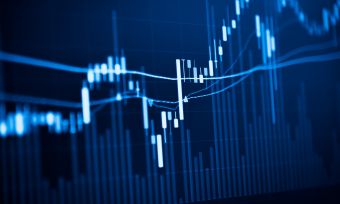The market for ethical or environmental, social and governance (ESG) exchange-traded funds (ETFs) is massive right now. Let’s learn why.
Last year, assets invested in ESG ETFs hit an all-time high as more and more investors want investments that align with their core values. The biggest among them have well north of a billion dollars invested.
As the market for ethical investment grows, we look at what typically makes up an ESG ETF, how they’ve been affected by the coronavirus, and the ones to look out for.
What is an ESG ETF?
An ESG ETF is a way for investors to invest in something that can generate social good, not just financial gain. This is called “impact investing” and the plethora of available ETFs in this field help investors put money behind companies with a good track record on reducing carbon emissions and improving gender balance.
What makes up an ESG fund is also about what it excludes, so don’t expect to see alcohol, firearms or tobacco companies in the fund basket. However, tech companies like Facebook and Amazon feature heavily, even though they aren’t exactly controversy-free.
Like any other exchange-traded fund investors can buy and sell ESG ETFs on an exchange. For ethically-minded investors, they offer the added benefit of being transparent. Unlike a mutual fund, ETFs have to report holdings daily. A boon for investors concerned about how their money is being used.
How have ESG ETFs performed during the market downturn?
One question potential investors will want to know is how ESG funds have fared during the current coronavirus-triggered downturn. Chase de Vere founder and CEO Nigel Green told Investment Week: “Since the Covid-19 public health emergency upended the world, the latest broad analysis shows that ESG funds have typically continued to outperform [other funds].”
“Since the Covid-19 public health emergency upended the world, the latest broad analysis shows that ESG funds have typically continued to outperform [other funds]” – Chase de Vere founder and CEO Nigel Green
Morningstar analysis backs this up, with analysis showing that ESG ETFs “weathered the market downturn better than conventional ETFs” in three out of four categories.
However, one or two months might be too short a timeframe to judge ESG fund performance versus other funds. While the pandemic has been unfolding, oil prices have plummeted. Seeing as ESG funds typically exclude energy stocks, they will have been relatively unscathed by plummeting oil prices.
If you are passionate about making a difference, a great place to start is by evaluating the companies you choose to invest in.
Find out more about Investing in ETFs during different life stages in the next chapter.
Head back to the Ultimate Guide to ETFs
The table below displays some of the International Broad Based ETFs available on our database with the highest three-year returns (sorted highest to lowest by three-year returns and then alphabetically by provider name). Use Canstar’s ETF comparison selector to view a wider range of products. Canstar may earn a fee for referrals.
 Original article published May 2020 at CMC Markets. Republished with permission.
Original article published May 2020 at CMC Markets. Republished with permission.
This article was reviewed by our Content Producer Isabella Shoard before it was published as part of our fact-checking process.







Share this article